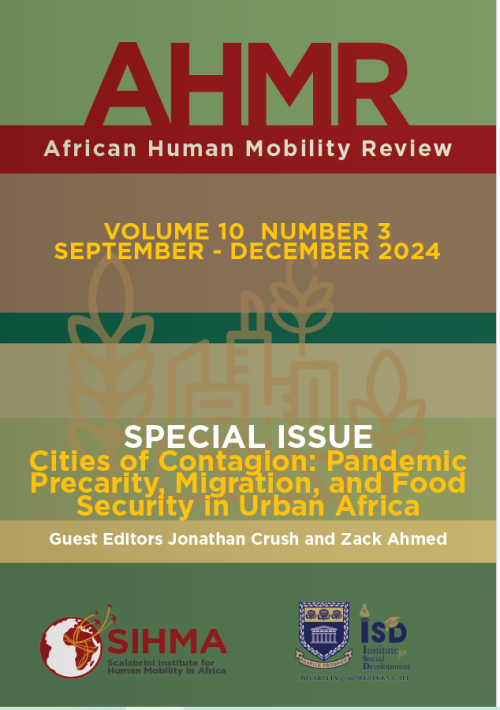Main Article Content
Solving the Cape Town Puzzle: Class, Politics and Migration in the Informal Food Economy
Abstract
Political empowerment possesses significant potential to facilitate the realization of economic inclusion by allowing marginalized groups to make claims on the state in the pursuit of justice and equality. This is particularly promising for individuals engaged in informal economic activity. Cape Town, South Africa, is in many ways a model for this idea: following its post-apartheid democratization process, governments at the local, provincial, and national levels officially recognize the value of informality and have adopted policies to support it. Yet persistent forms of exclusion for those who engage in informal economic activity remain. This article examines why this is the case. In doing so, it explores the forms of marginalization experienced by migrant and non-migrant workers in the Cape Town’s informal food economy and highlights the importance of three factors in explaining why democratization has not translated into greater inclusion: (1) the contours of inequality in the city; (2) the nature of local and national party politics; and (3) the specific dynamics that surround migration and informality. When seeking to translate institutional change into more inclusive forms of development, it emphasizes the importance of paying attention to both open democratic structures and processes and the forms of politics that fill them.







